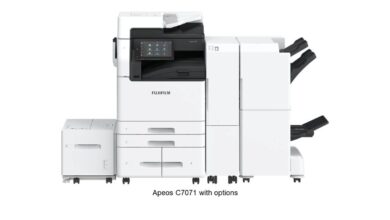How to Start a Mechanic Business from Your Home
Deciding to open an auto mechanic operation is fun and a definite change from working for another auto shop. It provides the opportunity to grow from humble beginnings at home to a larger operation in its own dedicated auto shop when developed over time.
By starting at home, it keeps costs down. It’s not necessary to invest in machinery for multiple drive bays to work on several vehicles at the same time. This reduces the upfront costs involved, which is helpful when wanting to get started sooner in building a dedicated list of regular customers.
Let’s now look at what’s involved in starting a mechanic business from home.
Make Sure You’re Certified First
Being a mechanic and business owner with a certification from the National Institute for Automotive Service Excellence (the ASE) puts you on the right path from the beginning. Over 300,000 mechanics and other people in the auto trade presently hold this certification, which makes it highly relevant as an owner-operator.
In fact, it’s quite likely that anyone in the business will double-check whether you have the ASE or not. If you have to admit that you don’t, they will not credit the business with much and find it difficult to refer any trade your way, regardless of your personal skills under the hood of a vehicle.
Business Insurance is Easier with an ASE
You may never have had to worry about buying insurance for a mechanic’s business before. However, it’s useful to know ahead of time that the insurer also will expect to find that the owner has an ASE or, failing that, their mechanics do.
In the absence of an ASE, an insurer can take the view that the business is a high risk. Then they’ll either offer an extremely high premium with a substantial deductible along with additional restrictive terms, or they’ll decline to offer business insurance at all. When wanting to keep startup expenses low, not having an ASE is going to work against you.
Create a Proper Estimate for the Startup Expenses
The type of financial planning required to start any business goes way beyond what a mechanic is used to handling. They’re hands-on with the vehicle, but not so great with the paperwork or computers.
In the case of starting a mechanic business from home, you’ll quickly discover that someone at the previous employer was probably much better with the numbers that you thought. Otherwise, they wouldn’t have gotten through the startup phase at all, or into their second year of trading, let alone making a profit over the years either. More was going on than was known, but that’s okay.
It may be useful to take a course on Microsoft Excel to learn more about how to use it well. Alternatively, watching YouTube videos can at least get you up to speed, even if they won’t cover every aspect that will be useful to you.
Hiring an accountant to assist in costing out the startup will avoid missing out an important expense. It will be more expensive that way though.
Knowing What Tools Are Needed
While it may be true that you already own a good set of mechanic’s tools, they’ll be some items that the employer owned.
You might find that you still require quite a few items. These might include a paint sprayer and protective gear, a lift to get under the vehicle or diagnostics equipment to figure out vehicle tracking or electronic issues.
The cost for all these items needs to be included in the aforementioned financial budget to ensure you can afford to open up.
Providing a Suitable Place for Vehicles
Running a business from home, it may become apparent that you should make some changes.
For instance, it will probably be a good idea if the vehicles will be stored outside to install a carport, garage, or an RV carport if you’ll work on RVs too. These provide overhead or complete coverage and, in the case of a garage, extra security too.
Whether you’re touching up the paint or respraying a panel, working on the engine or just giving the vehicle a final wash, dry and polish, having overhead cover avoids spoiling the final finish before the vehicle’s owner comes to collect. To get a carport, garage or RV carport installed, this reliable company is worth talking to.
Specialist or Generalist?
It’s necessary to decide what type of mechanical work will be offered by the business. With mechanics, there are many avenues to go into beyond basic oil changes, engine retuning or changing out tires.
Whether you want to be a generalist or a specialist is a tough decision. Sometimes it happens by accident when receiving a string of customers with similar vehicle issues and then developing a well-regarded reputation for fixing up that type of problem. Other times, word of mouth can spread about how well difficult vehicle performance issues are resolved at your home garage and it’s too late to change it.
Being a specialist is not without some degree of risk. Whilst it will mean picking a broad enough specialization to still earn enough money to break even initially and eventually make a decent profit, it can also be a drag on the business too. Local customers can mistakenly believe that if your business is the one that deals mainly with brake or wheel issues, then it won’t be good at fixing a problem with the dashboard.
The list of possible specializations is long, but include a collision repair specialist, a light/heavy truck technician, an RV repairer or an auto servicing specialist.
Starting a mechanic business at home is the first step to owning one on main street that will attract many more passersby. You’ll need to find innovative ways to market your new business and a plan for how to do that. Mostly it will be word of mouth, but it’ll also be necessary to get creative about how to find new customers. A website is certainly worth getting and business cards too. Promoting the business online, in local newspapers and discussion boards should also bear fruit when putting in the time. Be prepared for a slow start.





